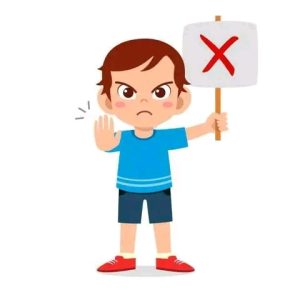The narcissistic father in 2025

The Narcissistic Father, Narcissism in 2025, Why Would a Narcissist Not Be a Good Father?Explore the complexities of narcissism in fatherhood. Understand why a narcissistic father may struggle to provide the emotional support children need in 2025.
Delve into the impact of narcissism on parenting. Discover why a narcissistic father may not fulfill the essential role of nurturing and support in 2025.
Uncover the challenges of having a narcissistic father. Learn about the implications of narcissism in parenting and its effects on children in 2025.
Introduction to the Narcissistic Father:
The Narcissistic Father, Narcissism in 2025, Why Would a Narcissist Not Be a Good Father?
Narcissism, Narcissistic Parents and How Does a Narcissist Affect Children? A Comprehensive Guide ?
A narcissistic father is a personality that suffers from a psychological disorder centered around an excessive sense of self-importance and an urgent need for attention and appreciation. These traits are manifested in behaviors that negatively affect family relationships, as his focus is often centered on his personal needs rather than the needs of his children. The narcissistic father lacks empathy, making it difficult for him to understand his children’s feelings or support them emotionally. He seeks to impose his opinions and control the family’s life, creating an environment that may be characterized by tension and anxiety. Understanding this dynamic is important to help children cope with negative influences and achieve healthy growth.
We previously mentioned in a previous article on the My Family blog the topic of the narcissistic mother and focused on many aspects, the most important of which is how to protect children from her influence. In this article, we will discuss again the definition of the narcissistic father and narcissism as a whole and some solutions?
So what is narcissism and who is the narcissistic father?
1: Definition of narcissism:
Narcissism is a psychological disorder characterized by an excessive sense of self-importance, with a constant need for admiration and appreciation from others. Its characteristics include:
1. An exaggerated sense of self:
the belief that one is better than others.
2. An excessive need for admiration:
the constant search for affirmation and praise.
3. Lack of empathy:
the inability to understand or care about the feelings of others.
4. Exploitation of relationships:
using relationships to achieve personal goals.
Narcissism can negatively affect personal and social relationships. We talked about narcissism in a previous article in which we discussed the narcissistic mother and its impact on the child’s psyche.
2: Definition of a narcissistic father:
A narcissistic father is a character who exhibits narcissistic traits, centered around an excessive sense of self-importance and the need for admiration and appreciation. His characteristics include:
1. A constant demand for attention:
seeks to be the center of attention in the family.
2. Lack of empathy:
finds it difficult to understand children’s feelings and meet their emotional needs.
3. Control:
tends to impose his opinions and authority on children’s behavior.
4. Exploitation:
uses children to achieve his own interests, without taking into account their needs.
The behaviors of a narcissistic father negatively affect children’s mental health and social relationships.
3: The impact of a narcissistic father on a child’s psyche:
1. Lack of self-confidence:
The child feels inadequate, which affects his self-esteem.
2. Lack of empathy:
The child lacks proper learning of empathy skills, which hinders the formation of healthy relationships.
3. Psychological pressures:
The child lives under the pressure of the constant need to please the father, which leads to anxiety and stress.
4. Behavioral problems:
The child may display narcissistic or hostile behaviors as a result of modeling the father’s behavior.
5. Depression:
The child may feel lonely and sad, which may lead to depression.
6. Difficulty making decisions:
The child lacks self-confidence, which makes making decisions a difficult task.
Understanding these effects helps provide the necessary support for children dealing with these family dynamics.
4: How to deal with a narcissistic father to protect children:
The Narcissistic Father, Narcissism in 2025, Why Would a Narcissist Not Be a Good Father?
1. Setting boundaries:
Setting clear boundaries for unacceptable behaviors, while maintaining dialogue.
2. Effective communication:
Use a clear and respectful approach when discussing children’s needs.
3. Providing emotional support:
Providing support and reinforcement to children to maintain their mental health.
4. Teaching social skills:
Developing children’s empathy and communication skills.
5. Avoiding alignment:
Maintaining neutrality and not showing bias towards the father in conflicts.
6. Seeking help:
Seeking help from a counselor or therapist to support the family in dealing with complex dynamics.
7. Creating a safe environment:
Providing a stable and loving space away from family tensions.
Following these strategies can help protect children and promote their mental health.
– Conclusion about the narcissistic father:
A narcissistic father can have a profound and negative impact on children’s psyche, as his self-centered behaviors lead to low self-esteem and difficulties in social relationships. Recognizing these dynamics is essential, as it helps in understanding the challenges children face. By providing emotional support and teaching communication skills, children can be protected and their mental health can be promoted. Moreover, seeking the help of specialists when needed can help address this negative impact, enabling children to develop their identity in a healthy and stable manner.
Ultimately, efforts must be intensified to establish laws to protect children psychologically and not wait until they are exposed to physical harm before starting legal procedures for deterrence.
